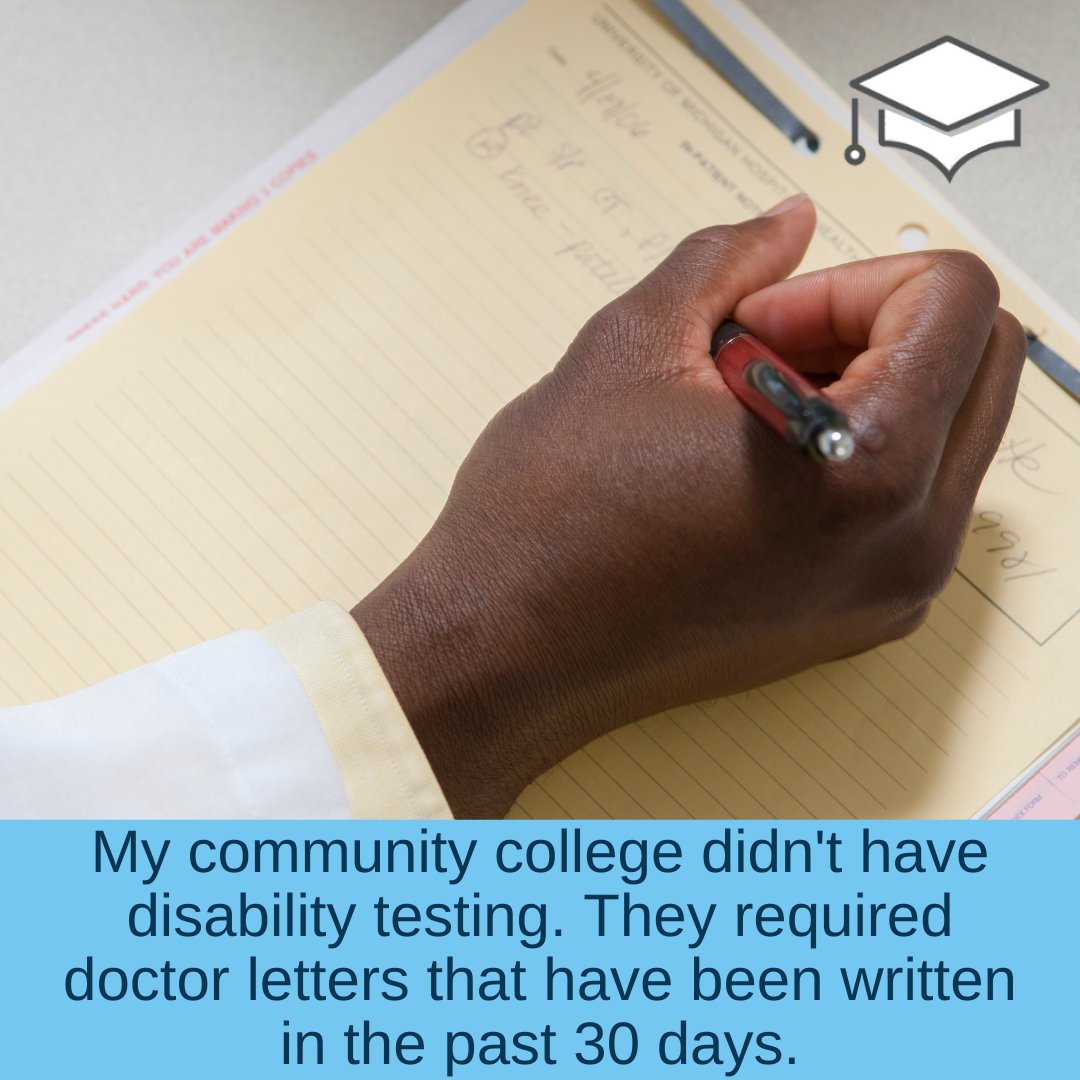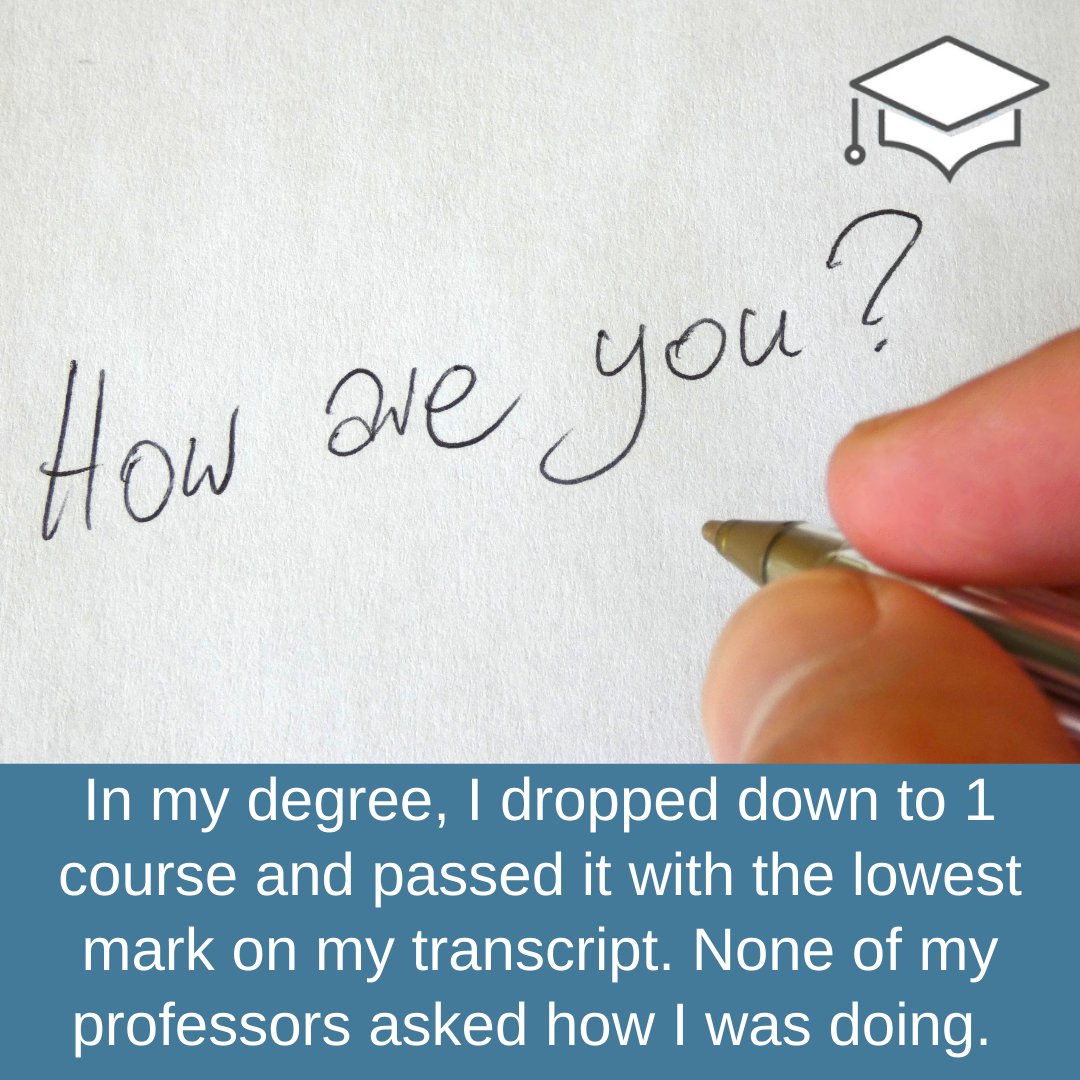
1/ CW: mental illness, ableism, racism, trauma
Thread: these are my experiences in academia that led to my own self-advocacy and advocacy in academia. I want folks to remember that many of us are advocates for the sake of our own survival in higher education.
Thread: these are my experiences in academia that led to my own self-advocacy and advocacy in academia. I want folks to remember that many of us are advocates for the sake of our own survival in higher education.
2/ For the sake of not completely revisiting trauma and my mental health today, a lot of these next few tweets of my experiences re-entering higher education post hospitalization will be summarized.
3/ When I got back, I tried to make my hospitalization private. Somehow faculty who weren’t my professors that semester knew. Additionally, it was implied that I was lazy + irresponsible for not focusing on class registration.
4/ I was advised by multiple medical professionals not to focus on school but on my recovery. I got into therapy and tried to get accommodations, but there were so many bureaucratic hoops to jump through. I had to ‘prove’ my disabilities and the thought of that was exhausting.
5/ Instead I relied on my very frequent doctors’ visits and their notes for university approved absences. I was constantly changing medications and dosages – folks do not realize how difficult it is to find medications that work when you have so many symptoms to treat.
6/ I was told by a faculty member/mentor that they were hesitating to write a letter of recommendation when I applied for my 2nd NASA internship because of my mental illnesses/ mental health. That *hurt*. I got the internship anyway without their letter. I did well.
7/ Just because mentors, faculty, friends, family have a glimpse of chapters of our story does not entitle them to tell us how to write our own stories and pave our paths. That is not okay.
8/ I’ve been told to not include my struggles with my mental health and disabilities because it would hinder people from working with me. Why would I want to work with someone who is ableist?
9/ I was even perceived as ‘lazy’ or didn’t try hard enough when I was fighting mental, emotional, and physical battles outside of school while keeping my grades up. Like my dad said, I felt like I had to work harder for people to take me seriously. That was the truth.
10/ I’ve been told I have an advantage because I'm Latina, but also to reconsider grad school because I wouldn’t be able to handle it due to my mental illnesses. I dunno, I think my 3 NASA internships, grades, research presentations while fighting for my life indicate otherwise🤷♀️
11/ I know in #DEHEM21 we discussed Minority Stress, but my gosh I did not know this was a real thing until processing this later. Even then, my hard work and perseverance has been credited to 'xyz,' 'abc,' anything but my work.
12/ To be clear: I try to give the benefit of the doubt, but there are some words that will stick with me for the rest of my life. To be undermined because of my disabilities - bipolar and severe depression - and mental illnesses while being a Latina woman in STEM...
13/ It's haunting. People still think I got to Harvard because I had an 'advantage' or will credit anything but my work. Let me be perfectly clear: the system is working exactly as it was intended to. I have had to fight and advocate for myself to stay here- so many of us have.
14/ This is only a summary, but I can tell you this: struggling with mental illness(es) and invisible disabilities alone is isolating. I finally started sharing my experiences on my personal twitter account to raise awareness and help people know they aren’t alone.
15/ Vocalizing my struggles and discussing mental health on Twitter life completely changed... for the good. This will bring me to my next thread: advocacy. Thanks for reading if you made it this far. ❤️ /End
• • •
Missing some Tweet in this thread? You can try to
force a refresh








